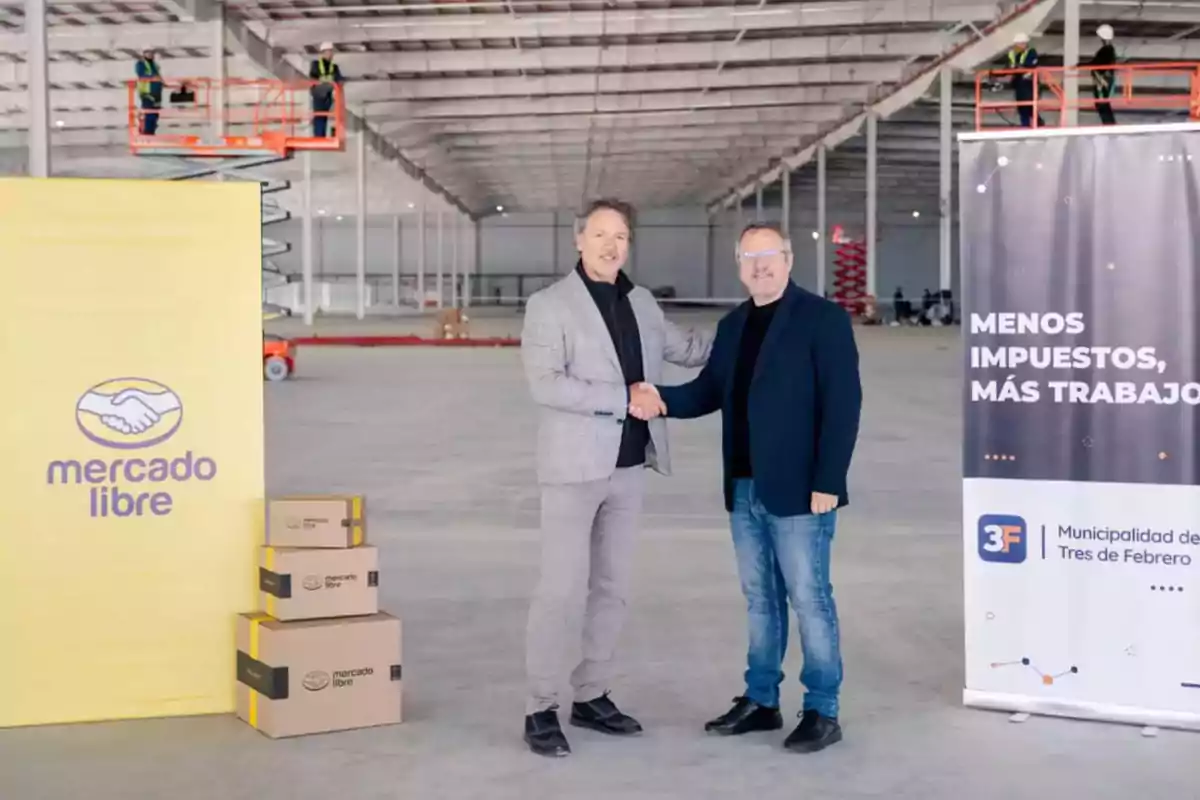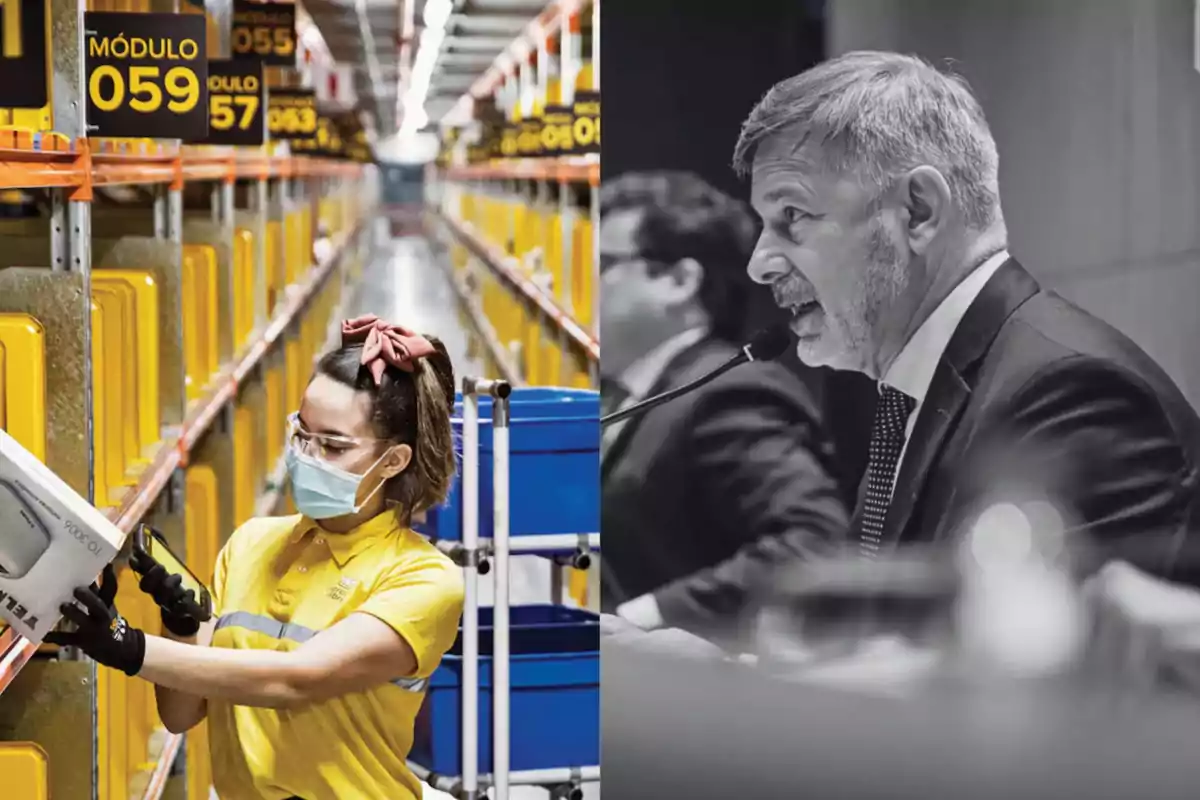
Mercado Libre will invest US$65 million in Tres de Febrero after leaving Córdoba
The logistics center will be established in a municipality governed by La Libertad Avanza and will receive local fiscal support
Mercado Libre announced a US$65 million investment to set up a new logistics center in Tres de Febrero, Buenos Aires. The decision reinforces the contrast with the city of Córdoba, where it recently closed its offices due to the high fiscal cost. The Buenos Aires municipality is governed by Diego Valenzuela, a key figure in La Libertad Avanza.
The new complex will have an area of 58,000 m² (624,306 square feet) and will be operated by Grupo Posadas. The center will have the capacity to store 500,000 units and dispatch up to 100,000 per day. It will generate 400 direct jobs in the region.
The choice of Tres de Febrero is due to the tax benefits granted by the municipality. The municipality, led by Diego Valenzuela, joined the Large Investment Incentive Regime (RIGI). It will also exempt the company from paying local taxes during the first year.

The fiscal environment as a key factor for attracting investment
According to Juan Martín de la Serna, president of Mercado Libre Argentina, municipal support was decisive in the selection. He highlighted that the site has a strategic location on the Buen Ayre highway. He emphasized that the municipality's fiscal commitment facilitates the conditions for investing and growing.
The new center is part of the company's regional expansion plan. In April, Mercado Libre announced a total investment of US$2.6 billion in the country. The company keeps operations in Buenos Aires, Mendoza, Santa Fe, Entre Ríos, San Luis, and Córdoba.
De la Serna stated that the tax climate must support development and not hinder it. The case of Tres de Febrero is an example that local policies can attract private capital. Public-private collaboration makes it possible to generate genuine employment and economic development.

La Libertad Avanza creates jobs, while Córdoba capital drives away investment
The news comes just days after the closure of Mercado Libre's offices in the city of Córdoba. The decision to leave the Capitalinas building was motivated by the high municipal taxes imposed by Daniel Passerini's Kirchnerist government. The company reported that it was paying $770 million per month to the local treasury, a cost it considered disproportionate.
Unlike Tres de Febrero, Córdoba's municipal administration did not offer competitive tax conditions. The amount paid was more than twenty times the cost of renting the office. After the closure, 1,260 employees will work remotely starting in August.
The company stated that it keeps its commitment to the province of Córdoba. However, it clarified that future decisions will be made based on environments that promote investment and employment. The capital city was left at a disadvantage compared to other districts more open to development.

The Córdoba model of fiscal suffocation
The contrast between the two municipalities reflects the importance of local tax design. While some districts seek to sustain spending with more tax pressure, others promote growth by reducing obstacles.
The installation of the new logistics center in a district governed by La Libertad Avanza marks a change in trend. Municipalities that offer predictability and tax benefits attract the interest of large companies. The case of Tres de Febrero could set the path for other cities seeking to attract investment.
In a challenging economic context, local policy becomes decisive in determining the course of employment and production. Meanwhile, Córdoba capital drives companies away, other districts make them protagonists of growth. Investments follow economic common sense.
More posts: